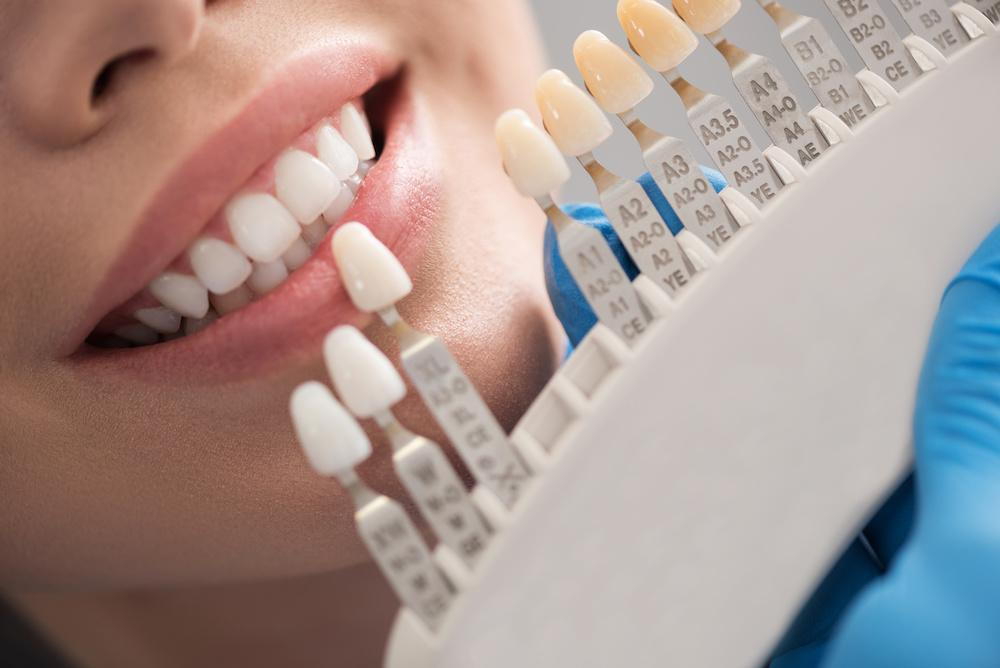Dental crowns are an effective option for tooth replacement that can provide the look, feel, and function of natural teeth. A crown is a ceramic, resin, or metal cap that goes over the top of the remaining portion of a natural tooth that has been prepared for the procedure.
They are often a preferred method for tooth replacement because they retain the natural roots of the tooth. During the procedure, the material is trimmed away to create a peg-like base for the crown. It is then attached using dental cement to provide a durable and long-lasting replacement.
Crowns can also be used with dental implants to replace entirely missing teeth. In this case, a titanium post is surgically implanted into the jaw bone to serve as a strong foundation for the crown. This can provide the same functionality during eating and speaking as a crown applied to natural roots, but keeping the natural tooth is preferred for overall oral health.
When Is a Crown Needed?
Crowns are an effective solution for a variety of dental issues. They can serve as a replacement for teeth that have experienced significant tooth decay that dental fillings can’t resolve. In some cases, a dental crown is applied after a root canal procedure, but not always.
They are also useful for teeth that have become physically damaged through accidents. When a tooth is chipped, cracked, or otherwise broken, a crown is often the best option for replacement rather than extraction.
Many patients seek out crowns for cosmetic purposes. Teeth that are gapped, discolored, or otherwise irregular can affect the appearance of your smile, even if they aren’t a health concern. A crown provides a natural-looking replacement that presents an improved appearance without compromising the function of the tooth.
Are Crowns Permanent?
Crowns last a long time, but they aren’t technically permanent. The expected life for most crowns is around 15 years, with some carefully maintained ones lasting 20 or more years. Individual habits are a significant factor in how long any crown will last.
Eventually, a dental crown will need to be replaced. This is generally a simple procedure involving the removal of the old crown and the application of a new one. The tooth has already been prepared for crown application the first time, so little additional preparation is required.
In many cases, crowns need to be replaced due to sudden damage. Chips or cracks will require a replacement because the crown will surely break apart under the stress of chewing once it has become damaged. This damage can be the result of accidents or eating particularly hard foods.
Crowns can also wear down over time, particularly if there are factors at play that cause natural tooth wear, such as grinding and misalignments. This is a gradual process, so there isn’t any hard line where they’ll need replacement. Instead, this will likely come up at some point during regular dental checkups.
The crowns used for dental implants will also need replacement at some point. The titanium post is expected to last a lifetime due to the biocompatibility of its material. However, the crown will have to be removed and replaced, just like those using natural tooth roots as a base.
How Can I Get the Most out of My Dental Crown?
Taking proper care of your dental crown can extend its lifespan and reduce the need for replacements. There are a number of steps you can take to provide the best possible care for your dental crowns.
Grinding and clenching of the teeth are among the most common causes of damaged crowns. Avoid doing these actions intentionally. If you have a history of grinding in your sleep, you could discuss nightguards with your dentist. These can protect crowns in the same way that they preserve natural teeth.
The gum line around your crown presents a potential space for bacteria to grow. To avoid decay to the tooth underneath it, you should maintain good brushing and flossing habits. By paying a bit more attention to the replacement and surrounding areas, you can provide additional protection.
Another important tip is to not use your teeth to bite things other than food. Don’t bite your fingernails or use your teeth to open plastic packaging. You should also avoid particularly hard foods like ice, hard candy, and some nuts. These can all cause crown damage.
Are You Considering Dental Crowns?
Whether for a decayed or damaged tooth or for cosmetic reasons, Dental Implant and Aesthetic Specialists of Atlanta can provide you with high-quality crowns that match the natural appearance of your teeth. Led by Dr. Brett Langston, we provide top-notch tooth replacements. Contact us to find out what your options are and how we can restore your dental health.

